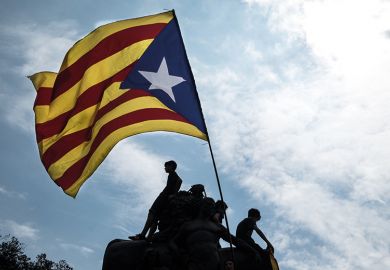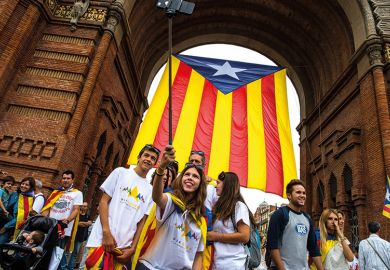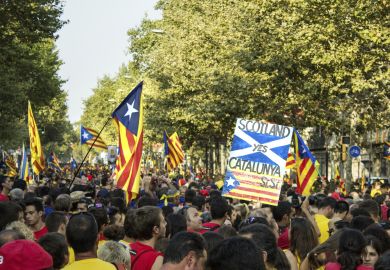The economist and former education minister of Catalonia, Clara Ponsati, is set to be arrested by Scottish police despite protests from the University of St Andrews that she may be “targeted for standing up for her political beliefs”.
Professor Ponsati was director of the university’s School of Economics and Finance until last July, when she left to become a minister in the Catalan government.
Following the Catalan independence referendum in October – denounced by Madrid as illegitimate but marred by police violence – Catalan government ministers fled Spain, with Professor Ponsati rejoining St Andrews as a researcher earlier this month.
Now Catalan politicians overseas are being held following the re-issuance of a European arrest warrant by Spain on charges of rebellion.
Aamer Anwar, the solicitor and rector of the University of Glasgow who is representing Professor Ponsati, said that he would “robustly defend her against the Spanish attempts to extradite her”.
“Clara views these charges as ‘political persecution’ and submits that her human rights and justice cannot be guaranteed in the Spanish courts,” he said in a statement. “Clara remains defiant and resolute and believes that the Spanish government will never be able to crush the spirit of the Catalan people.”
The prospect of Professor Ponsati’s arrest has drawn criticism from a number of Scottish politicians, including first minister Nicola Sturgeon, who has condemned Madrid’s warrant, although she said that the Scottish government had no power to intervene in the legal process.
Following pressure from student groups and other campaigners, Sally Mapstone, St Andrews’ vice-chancellor, released a statement in support of Professor Ponsati.
“We are deeply concerned by recent developments, their motives and potential consequences,” she said.
“In the current circumstances, we believe there are legitimate arguments that Clara is being targeted for standing up for her political beliefs. That is anathema to us, and we will continue to offer her every appropriate support, while respecting due legal process.”
Professor Ponsati will hand herself in to police on the morning of 28 March, and face an extradition hearing in the afternoon, according to a statement from Mr Anwar.
Register to continue
Why register?
- Registration is free and only takes a moment
- Once registered, you can read 3 articles a month
- Sign up for our newsletter
Subscribe
Or subscribe for unlimited access to:
- Unlimited access to news, views, insights & reviews
- Digital editions
- Digital access to THE’s university and college rankings analysis
Already registered or a current subscriber?








